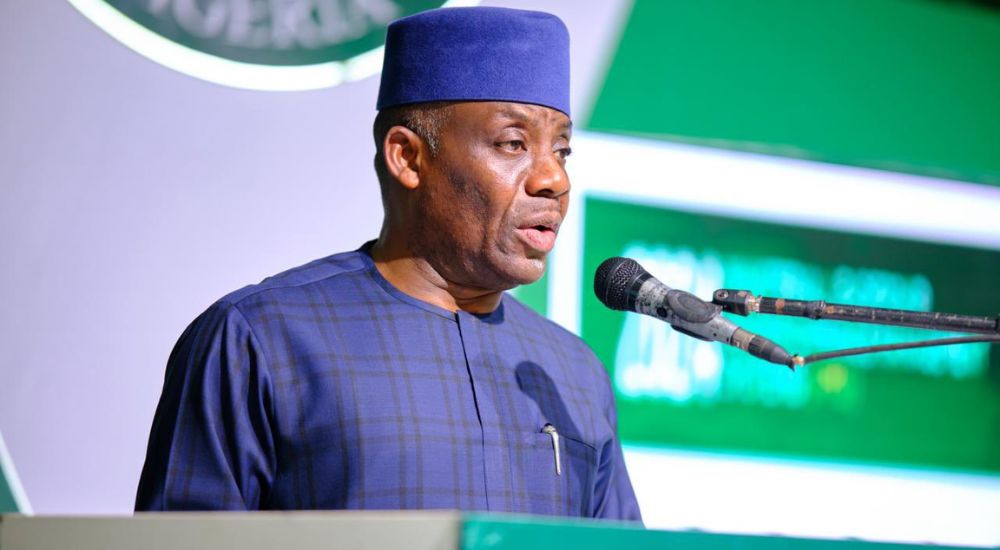Tinubu’s Security Scorecard: Victories Counted But Battles Remain

President Bola Tinubu resumed office on May 29, 2023, pledging to overhaul Nigeria’s security architecture through reforms and proactive strategies aimed at ending terrorism, banditry, and other forms of violent crime.
In his inaugural speech, Tinubu vowed to prioritize national security and implement what he described in his manifesto as a “bold, no-nonsense crime prevention reform.”
Central to this plan was the creation of highly trained and disciplined anti-terrorist battalions (ABATTS), envisioned as special forces that would “seize the strategic and tactical initiative, giving terrorists, kidnappers and bandits no respite.”
Data from the Nigeria Security Tracker (NST), last updated in July 2023, revealed that over 14,882 incidents of insecurity were recorded between 2011 and 2023.
The reported crimes included banditry, explosions, kidnappings, attacks by militants, cultism, and armed robbery.
Confronted with persistent security challenges, Tinubu appointed a new set of service chiefs in 2023: General Christopher Musa as Chief of Defence Staff (CDS), Late Lt-General Taoreed Lagbaja as Chief of Army Staff (COAS), Air Marshal Hassan Abubakar as Chief of Air Staff (CAS), and Vice Admiral Emmanuel Ogalla as Chief of Naval Staff (CNS).
He charged them with the responsibility to restore peace across the nation.
NSA Highlights Gains
At an APC Midterm Policy Review Conference, National Security Adviser (NSA) Nuhu Ribadu reported measurable successes.
According to him, over 13,500 terrorists and armed criminals have been eliminated under the current administration. Additionally, more than 17,000 arrests were made, and over 11,200 hostages were freed.
Ribadu also disclosed that about 124,000 insurgents and their families surrendered, handing over over 11,000 weapons.
In the Southeast, IPOB’s once-feared sit-at-home orders are losing their grip as Ribadu said Fifty police stations have reopened and separatist strongholds are collapsing.
He added that in Zamfara and Kaduna states, 11,250 hostages were rescued, and notorious warlords such as Ali Kachala, Boderi, and Halilu Sububu were killed.
In the oil-rich Niger Delta, daily crude oil production surged to 1.8 million barrels in 2025, up from less than one million barrels before 2023. Operation Delta Safe reportedly dismantled 1,978 illegal refineries and thousands of other crude-processing facilities.
Regarding the Northeast, Ribadu stated that Borno State is witnessing “a thoughtful rebirth,” with over 13,543 insurgents killed and over 102,000 surrendering since Tinubu took office.
Challenges
Despite the milestones, the nation recorded recurring violent attacks in Plateau, Borno, and Benue States over the last three months, leading to multiple fatalities and prompting urgent appeals for federal assistance from state governors.
The most recent terrorist attack was recorded in New Marte, Borno State, underscoring the fragility of gains made in some regions.
Analyst Seeks Recalibration
Dr. Kabir Adamu, Managing Director of Beacon Security and Intelligence Limited (BSIL) acknowledged the administration’s foundational work but emphasised that more must be done to align the nation’s security framework with its developmental goals.
To this end, he called for a refined strategy built on transparent governance, decentralized coordination, robust border controls, resilient cybersecurity, and addressing the socio-economic root causes of crime.
He commended the government’s structural reforms, including the creation of the Ministry of Livestock Development, the National Commission for Almajiri and Out-of-School Children Education (NCAOOSC), local government autonomy, and budgetary increases for the security sector from N1.25trn in 2023 to N4.91trn in 2025.
Yet, Adamu cautioned: “Border security and violent criminalities including banditry, farmer-versus-herder violence and other forms of identity-based conflicts remain a challenge. Consequently, fatality rates are high and widespread.”
Meanwhile, in a comparative security analysis shared with THE WHISTLER, BSIL recorded 18,572 deaths, 9,795 abductions, and 8,483 violent incidents between July 2021 and May 2023.
From June 2023 to April 2025, fatalities reached 17,617, with 16,462 persons abducted, and 15,437 violent incidents documented. Adamu described these figures as “huge and concerning.”
Adamu called for revising outdated frameworks such as the National Defence Policy and National Security Strategy.
He noted that “a lack of clear delineation of strategic, tactical, and operational roles among security agencies” continues to undermine operational efficiency.
He said: “This confusion often leads to duplication of efforts, inter-agency friction, and a lack of decisive action. Regular and substantive National Security Council meetings are non-negotiable for strategic coordination, policy formulation, and high-level oversight.”
He also emphasized the need for a robust accountability system to measure the performance of security actors, calling for the immediate establishment of mechanisms to detect and punish failures in leadership.
The security expert joined the persistent calls for constitutional amendments to enable state policing.
He highlighted the importance of empowering subnational governments with adequate resources and legal backing to provide localized security solutions.
“The recent initiative to recruit forest guards is a positive step towards reclaiming ungoverned spaces, but its success will depend on efficient implementation and sustained support,” he said.
Adamu also identified Nigeria’s porous borders as a major vulnerability. While electronic surveillance systems have been introduced, he advocated for enhanced monitoring technologies, strict anti-corruption protocols, and regional collaboration—especially with Sahel countries—to combat cross-border terrorism.
On cybersecurity, Adamu pointed out enforcement gaps despite the presence of updated laws like the Cybercrime Act. He urged investments in skilled personnel, digital literacy, and privacy-conscious enforcement.
For long-term national security, Adamu insisted on structural interventions targeting poverty, unemployment, and rural development to reduce the allure of violent extremism.
“Resolving persistent farmer-herder conflicts through dialogue and effective land management, alongside comprehensive victim support initiatives and rehabilitation programs for surrendered individuals, will contribute significantly to peacebuilding and stability,” he said.
Tinubu’s Security Scorecard: Victories Counted But Battles Remain is first published on The Whistler Newspaper





